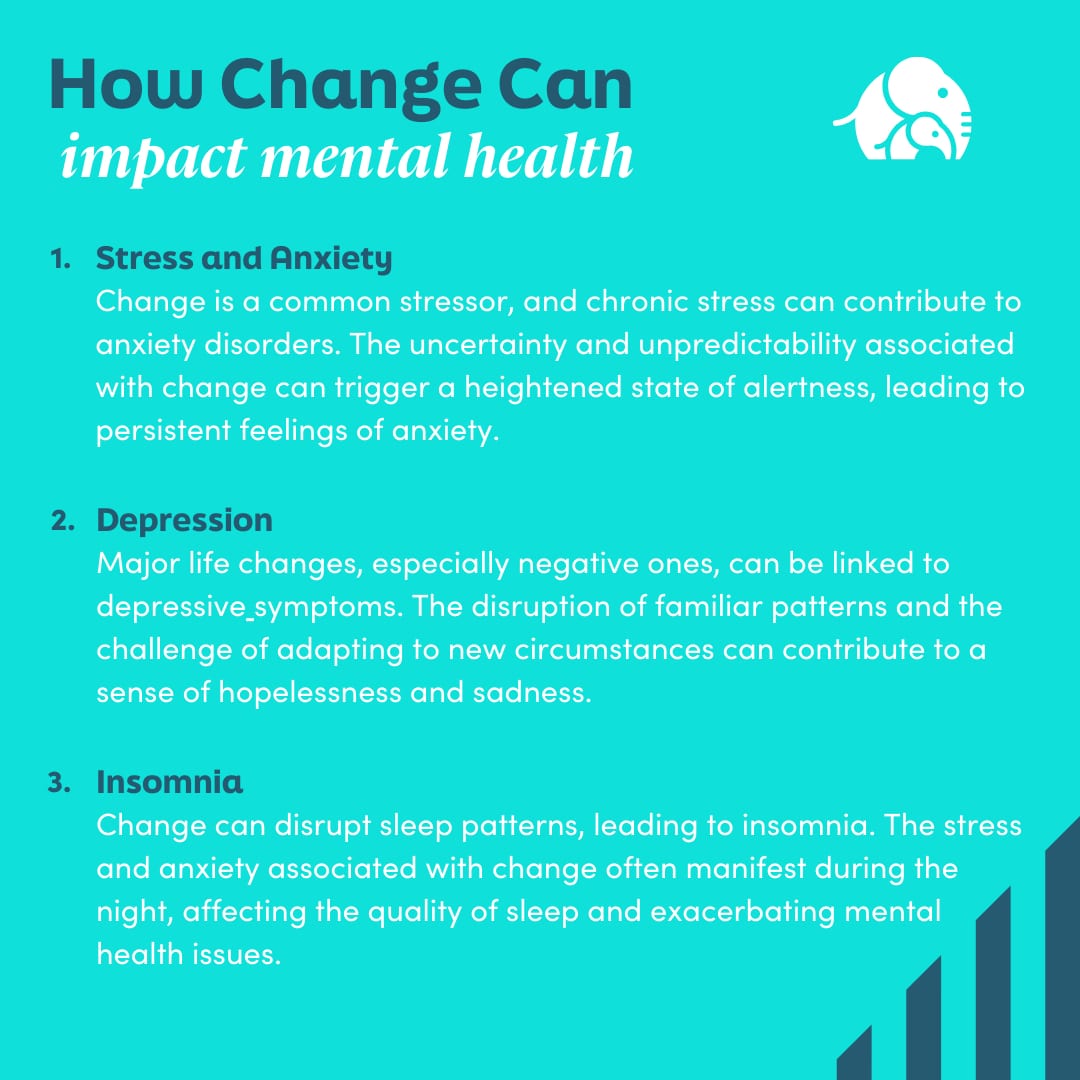Change is an inevitable and constant force in our lives. Whether it’s a career move, a relationship shift, or a personal transformation, whether we deem the change as positive or negative, the impact of change on our mental health is profound. There is science behind change and its effect on mental health, and mental health medications can play a role in navigating these transitions.
Ready to make changes for GOOD in 2024? Get started here
The Science Behind Change
Change triggers a cascade of psychological and physiological responses in our bodies. From a psychological perspective, change often disrupts our established routines and familiarity, leading to feelings of uncertainty and stress. Neurologically, the brain responds to change by activating the amygdala, the region associated with emotions, and the prefrontal cortex, responsible for decision-making and problem-solving.
These responses are deeply rooted in our evolutionary past when adapting to new environments was crucial for survival. However, in our modern, fast-paced world, these responses can sometimes lead to mental health challenges.
Impact of Change on Mental Health

- Stress and Anxiety: Change is a common stressor, and chronic stress can contribute to anxiety disorders. The uncertainty and unpredictability associated with change can trigger a heightened state of alertness, leading to persistent feelings of anxiety.
- Depression: Major life changes, especially negative ones, can be linked to depressive symptoms. The disruption of familiar patterns and the challenge of adapting to new circumstances can contribute to a sense of hopelessness and sadness.
- Insomnia: Change can disrupt sleep patterns, leading to insomnia. The stress and anxiety associated with change often manifest during the night, affecting the quality of sleep and exacerbating mental health issues.
Mental Health Medication as a Supportive Tool
Change can be quite challenging, and if traditional therapy alone isn’t quite cutting it, mental health medications can be valuable tools in managing its impact. Consider the following ways in which these medications can offer support:
- Improving Mood: Life changes often bring emotional fluctuations, and for some individuals, these shifts can become overwhelmingly low. Depression reduces energy, makes everything seem negative, and can sap the enjoyment out of new things. Medications such as antidepressants can play a crucial role in improving mood and make life changes easier and more enjoyable.
- Managing Anxiety: The uncertainty and unpredictability inherent in change can trigger heightened levels of anxiety. Anti-anxiety medications, such as selective serotonin reuptake inhibitors (SSRIs) or benzodiazepines, can offer relief by calming the overactive responses in the brain associated with anxiety. This allows individuals to cope more effectively with the demands of change, fostering a greater sense of control and resilience.
- Supporting Sleep: Disruptions in sleep patterns are a common side effect of significant life changes. The stress and anxiety associated with upheaval can interfere with restful sleep, exacerbating mental health issues and creating a cycle that further impacts well-being. Some medications can be used to treat insomnia and are especially helpful in combination with cognitive behavioral therapy for insomnia (CBT-I). By promoting better sleep patterns, these medications contribute to an improved overall mental well-being.
- Complementary Therapies: While medications offer valuable support, they are often most effective when combined with other therapeutic interventions. Psychotherapy, counseling, and lifestyle adjustments complement the effects of medication, providing individuals with a holistic approach to managing their mental health during times of change. These complementary therapies empower individuals with coping strategies, self-awareness, and a support system, enhancing the overall effectiveness of the treatment plan.
- Regular Monitoring: Change is dynamic, and so are an individual’s mental health needs. Regular check-ins with mental health professionals are crucial during times of change. Adjustments to medication may be necessary based on the evolving needs of the individual.
It’s important to recognize that the response to mental health medications varies from person to person. What works for one individual may not be suitable for another. Therefore, an individualized approach to medication is crucial. Mental health professionals collaborate with individuals to understand their unique needs and circumstances, tailoring medication choices and dosages accordingly.
Mental health medications can serve as powerful allies in navigating the intricate landscape of change. By stabilizing mood, managing anxiety, supporting sleep, and complementing other therapeutic approaches, these medications empower individuals to face the challenges of change with greater resilience and well-being. It is essential, however, to approach medication with a nuanced understanding, considering individual needs and working collaboratively with mental health professionals to find the most effective and balanced treatment plan.
At Ellie, our team of highly qualified providers are ready to help you manage change for the better! Learn more and get started here


